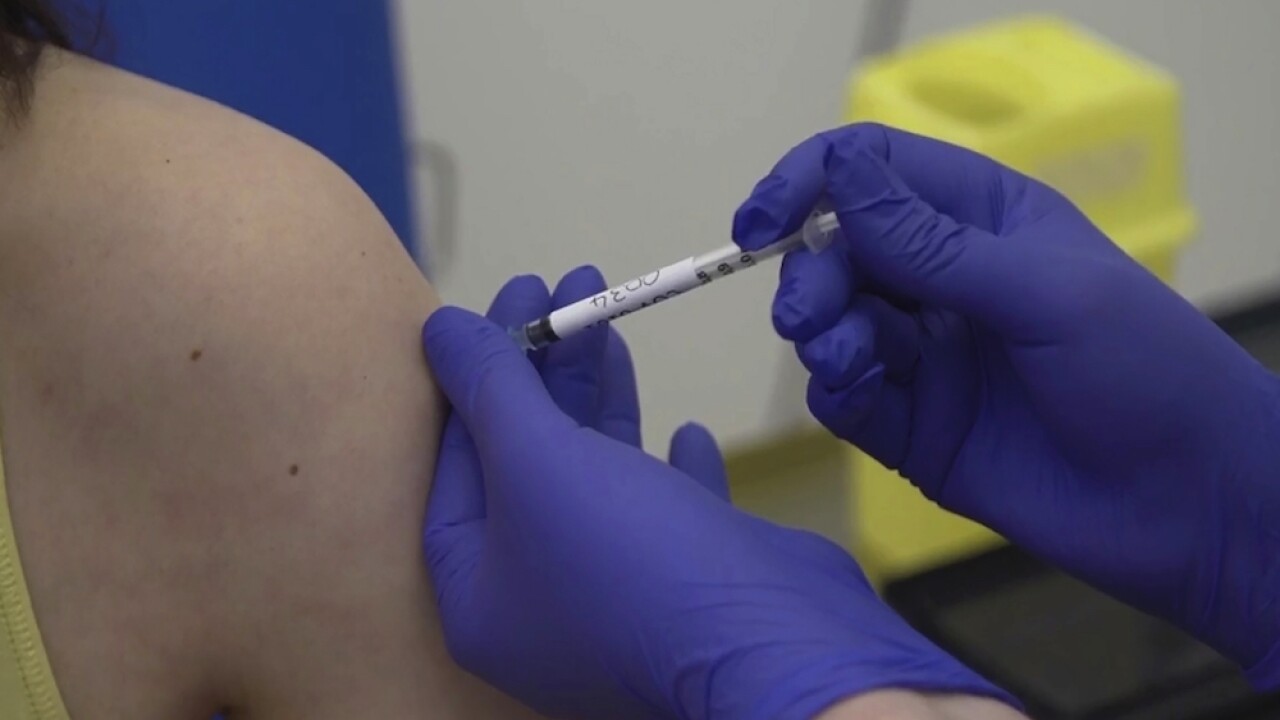On Monday morning, Pfizer announced that so far in Phase 3 trials, its COVID-19 vaccine candidate has been 90% effective in promoting protection against the virus. And while the announcement has many Americans seeing the light at the end of the tunnel, the pandemic is still far from over.
Pfizer's announcement on Monday is an encouraging sign, as it means that the company is on track to file for Emergency Use Authorization for the vaccine in the coming weeks. It also keeps the U.S. on a timeline to have at least one vaccine approved and available for distribution by the end of 2021.
But Monday's announcement does not mean a vaccine is imminent.
Pfizer is currently mass-manufacturing its vaccine candidate in the event it does receive Emergency Use Authorization from the FDA, and hopes to have 100 million doses of the vaccine ready to ship by year's end. But even if Pfizer is able to fulfill that ambitious order by Dec. 31, it would only be able to vaccinate about one-third of everyone in the county.
Once the initial vaccine order has been completed, it will need to be rationed for those who need it most — likely health care workers, essential employees and people in high-risk populations. While it is unclear who exactly will be eligible to receive the vaccine first, the Department of Health and Human Services (HHS) says the early distribution of a COVID-19 vaccine will be "constrained tightly" and will be "highly targeted" to "achieve coverage in priority populations."
Eventually, the U.S. hopes to grant emergency use authorization to several vaccine candidates — many of which are currently in production on orders from the U.S. government. HHS hopes that by the middle of next year, several vaccines will be approved and widely available. But at that point, officials will run into a second major hurdle — vaccine skepticism.
Skepticism about vaccines has been on the rise in recent years, fueled in part by the spread of misinformation online. In particular, baseless conspiracies linking vaccines to autism have spread on social media, eroding public confidence in medicine. In addition, polarized politics in the U.S. have led to speculation that government leaders will approve an unsafe or ineffective vaccine for political purposes.
Vaccines are only effective if enough members of the public become inoculated against a virus — if a virus has nowhere to spread, it will eventually die out. But Gallup polling released in October shows that just 50% of Americans say they would receive a COVID-19 vaccine if it had been approved by the FDA and available at no cost — far below the threshold for herd immunity, according to many health experts.
The Gallup polling is consistent with AP polling from earlier this year that also only found 50% willingness to take a COVID-19 vaccine.
All the while, the final push for a COVID-19 vaccine will be occurring during what members of the White House coronavirus task force warn will be the most concerning and deadly period of the pandemic. The virus is currently spreading in the U.S. faster than it has at any other point during the pandemic, just as Americans are moving social gatherings indoors where the virus is more likely to spread.
To be clear, health officials' efforts to develop a safe and effective COVID-19 is a momentous and historic achievement — approving a vaccine for emergency use by the end of the year would shatter all previous records for vaccine development. But while there may be light at the end of the tunnel, it may take several months — or years — to reach the end of the pandemic.


